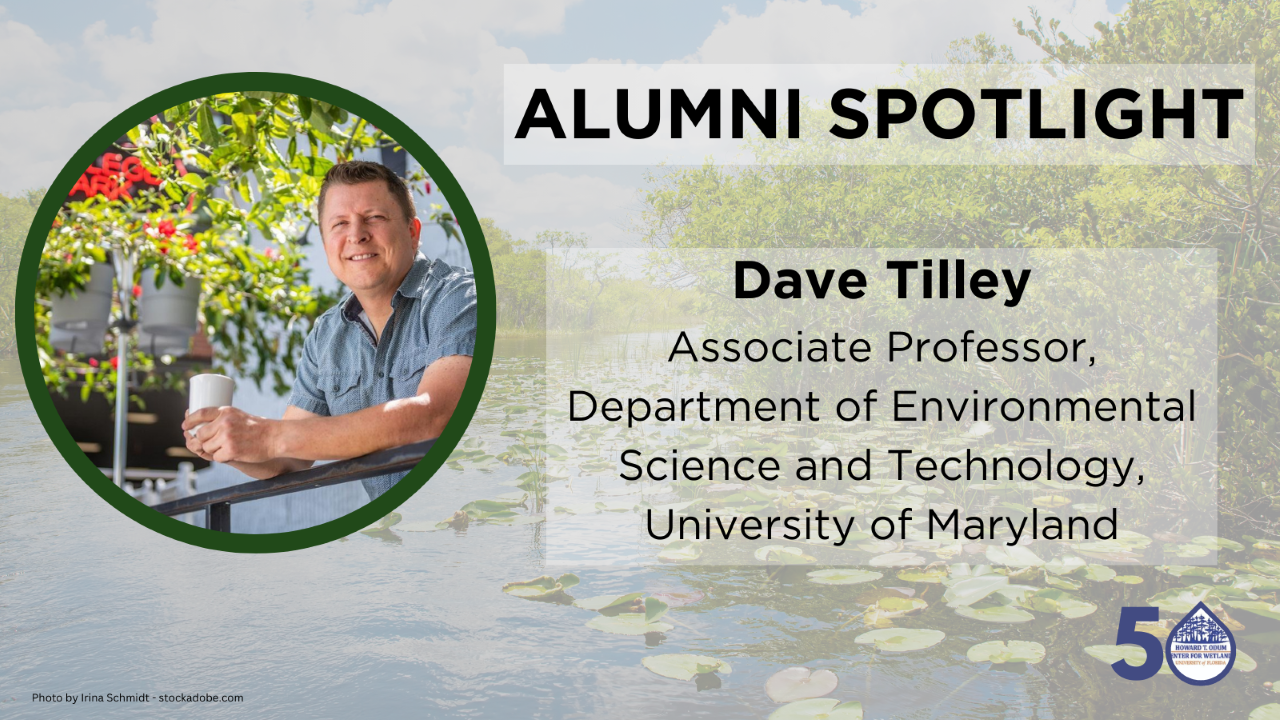“The CFW Gave Me a Springboard to My Academic Career”

Name: Dave Tilley
Time connected to the CFW: 1994-1999
Current position: Associate Professor, Department of Environmental Science and Technology, University of Maryland
How did the CFW shape your career path?
The Center for Wetlands gave me the springboard to my academic career. I entered knowing practically knowing about the environment and zero about wetlands. I left five and a half years later with a doctorate headed to my first academic position in Texas. Mark Brown and H.T. Odum were monumental in building my deeper knowledge about systems and how to use that systems thinking to interpret the world around me. I certainly would not be who I am or where I am without the CFW and its entire community of super-engaged graduate students.
What is your favorite memory from the CFW?
Wow! So many in five and a half years. Looking back, I think Mark and H.T.’s Systems Seminars was where I learned the most. It was where H.T.’s new ideas were presented to us. It’s where we met countless guests and where you could freely share your own outlandish ideas to get professional criticism and support. I specifically recall the day where H.T. brought in his epiphany about how watersheds were products of various forms of energy. He had been working with Silvia Romitelli from Brazil on her dissertation. It made me realize how energy dynamics really did transform all systems.
Why is the CFW important to you?
H.T. once told me, around 1998 or so, that it took about twenty years for others to accept his ideas. Of course, I thought, “Wow! He has had so many new and great ideas that he has a decades-long track record of seeing them come to fruition in the scientific community and beyond!” There is a legacy of his systems thinking that needs to continue to evolve and inspire others to think boldly using the basic tools he gave us in the form of mini-simulations, energy systems diagramming and emergy and energy quality.